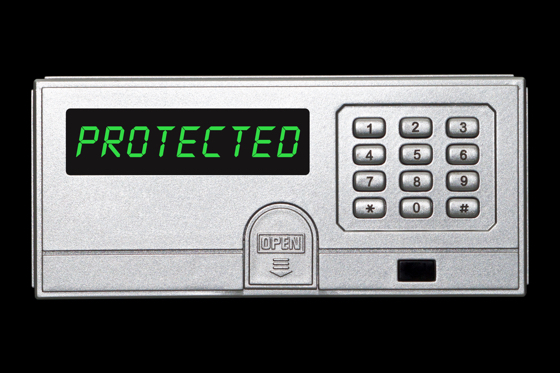In the hotel business, creating a welcoming, home away from home is key to customer loyalty. Naturally, making sure guests are safe is a bedrock of the hospitality industry. As both leisure and business travel ramps back up around the world, hotels are fixated on ensuring travelers are as safe as possible, specifically from the COVID-19 pandemic. But is this message of safety keeping hotels safe from litigation and nuclear verdicts? Unfortunately, the answer is no.
Contributed by Robert Tyson, trial lawyer, national defense firm Tyson & Mendes LLP, San Diego, California
From the multi-million-dollar Madison Avenue ad campaigns for the largest hotel chains, to the signs in small boutique hotels, the industry is fueling a plethora of lawsuits and ultimately, potential Nuclear Verdicts (a term often used to describe jury verdicts that exceed US$10 million or where the total award is disproportionate to the economic loss). While keeping a vigilant eye on cleaning protocols and dedicating resources to maintaining guest and staff safety are vitally important during a pandemic, the statements regarding safety are increasing your exposure to all types of lawsuits, long after this pandemic is over.
Why can’t you tout safety as your biggest concern? Because plaintiffs’ lawyers are salivating at the chance to misconstrue your well-intentioned words to get a jury of your peers angry and incite them to award a nuclear verdict. Your words today – holding yourselves to the utmost standards of safety – will be used against you for years to come in a whole range of lawsuits, from employment claims to third party acts of violence to slip and falls and all other types of torts. You are helping plaintiffs’ lawyers hold you to an unattainable standard that just does not exist anywhere in the world: complete and total safety from any harm. That is how your words will be used against you and the legal and economic consequences will be grave.
Safety is not your No. 1 priority
It is essential that you stop announcing safety is your “top” or “No. 1” priority. First of all, is it? Is safety the number one priority when you show up to work every day? Is the word safety mentioned in your Mission Statement, or listed as one of your core values? Google the biggest hotel chains’ mission statements and see if safety is even mentioned. Usually, it is not.
If safety is truly your first priority, then you must be in the safety business. But very few businesses manufacture or create safety. Hotels are no different. Has anyone shown up at your front desk and said, “I would like to order some safety please”?
No. So as a practical matter, if safety is not the main reason you exist, and is not mentioned as a core value or in your mission statement, stop saying it to the world. It is going to be used against you by opportunistic plaintiffs’ lawyers well into the future, in ways you cannot even now imagine.

What could go wrong?
Protecting against “nuclear verdicts” or unjust claims does not prohibit your hotel from emphasizing the safety of guests and staff. However, your messaging should consider the legal ramifications. Your messages should be framed in a way that limit risk and prevent issues down the road. Because terrible accidents do happen in the hospitality industry, and we do not want this liability to needlessly be placed on your business.
For example, Tyson & Mendes represented a large resort and spa in La Costa, California, when neighbors asserted the hotel was responsible for the 2014 “Poinsettia Fire”. Plaintiffs claimed over US$125 million in fire damages to neighboring commercial and residential properties. The Carlsbad Fire Department determined the fire was started by a golf club striking a rock on the resort’s golf course, while evidence showed it may have been started by a golfer’s cigarette. The hot, dry Santa Ana winds spread the fire across hundreds of acres in Carlsbad. The damage to property owners was devastating.
Was the hotel at fault because it had neglected to warn golfers of the dangers of Santa Ana winds, or even to shut the course done for the day? If the resort had signs up everywhere saying, “Your Safety is Our No. 1 Priority”, it may have been. Fortunately, we were able to convince the judge the La Costa resort was not negligent as a matter of law, avoiding a US$125 million claim. The ruling was later upheld in a 2-1 decision by the 4th District Court of Appeal.
What should your messaging be?
We now understand for your hotel’s legal protection you must avoid stating, “Safety Is Our No. 1 Priority”. Additionally, steer clear of terms like “always”, “top”, “first”, or “never”, as well as words like “risk” and “safety”.
So, what should you say? Think about alternative ways to communicate your dedication to safety while lowering legal risk. If you must reference “safety”, here are better ways to do so:
- “We are addressing the health and safety concerns of our staff and our guests every day.”
- “We care about the health and safety of our guests, our community, and our employees.”
- “The health and safety of our guests and our staff is our concern.”
Providing a safe environment is vital to the hotel industry, especially during this pandemic. But as you welcome guests back, safely, it is important you do not create unnecessary liability for your hotel. You must view through a legal lens your current social media, advertising, posted communication, emails, and internal policies to make sure your statements will not be twisted against you years from now by unscrupulous plaintiff attorneys. If you do so, your business will safely reopen and safely navigate the legal system for years to come.
